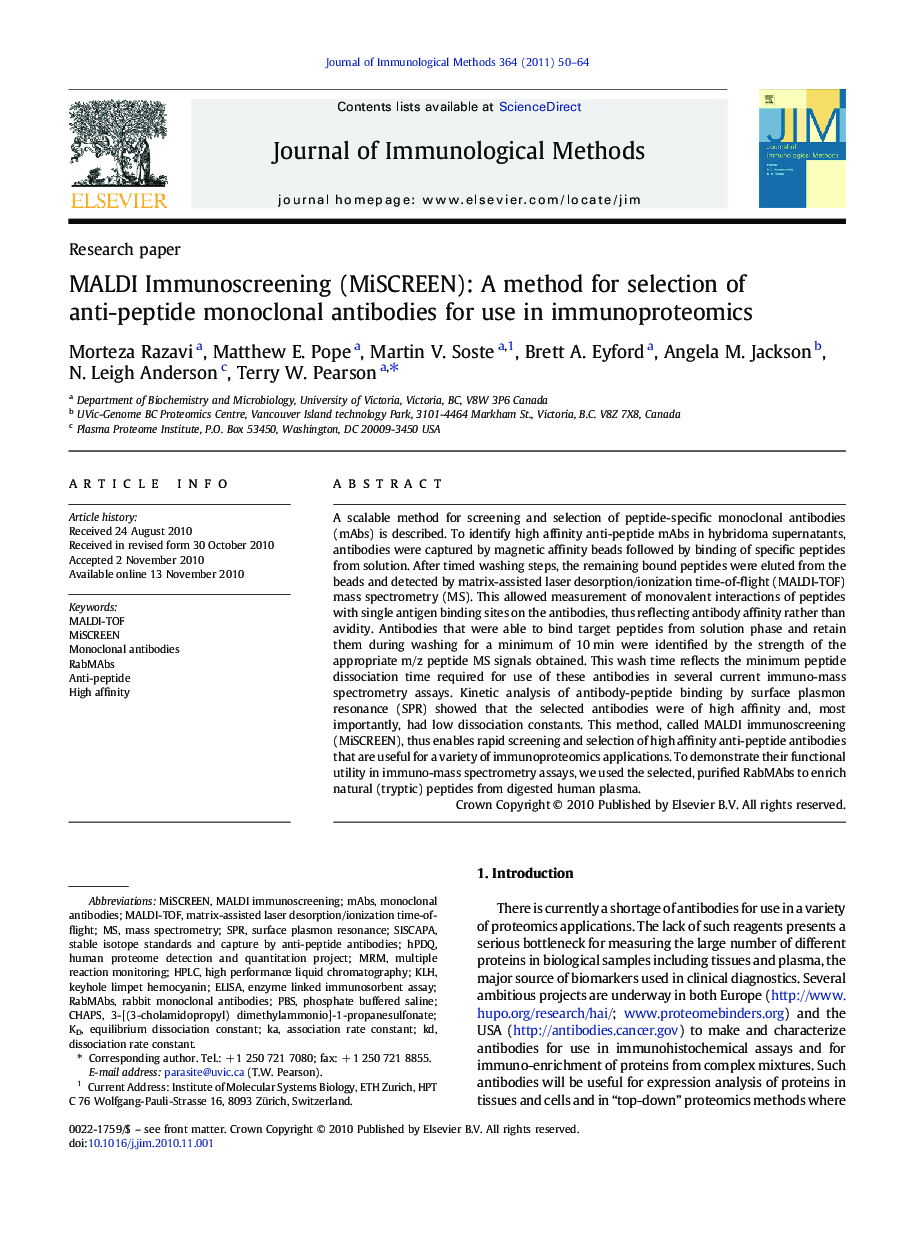| Article ID | Journal | Published Year | Pages | File Type |
|---|---|---|---|---|
| 2088483 | Journal of Immunological Methods | 2011 | 15 Pages |
Abstract
A scalable method for screening and selection of peptide-specific monoclonal antibodies (mAbs) is described. To identify high affinity anti-peptide mAbs in hybridoma supernatants, antibodies were captured by magnetic affinity beads followed by binding of specific peptides from solution. After timed washing steps, the remaining bound peptides were eluted from the beads and detected by matrix-assisted laser desorption/ionization time-of-flight (MALDI-TOF) mass spectrometry (MS). This allowed measurement of monovalent interactions of peptides with single antigen binding sites on the antibodies, thus reflecting antibody affinity rather than avidity. Antibodies that were able to bind target peptides from solution phase and retain them during washing for a minimum of 10Â min were identified by the strength of the appropriate m/z peptide MS signals obtained. This wash time reflects the minimum peptide dissociation time required for use of these antibodies in several current immuno-mass spectrometry assays. Kinetic analysis of antibody-peptide binding by surface plasmon resonance (SPR) showed that the selected antibodies were of high affinity and, most importantly, had low dissociation constants. This method, called MALDI immunoscreening (MiSCREEN), thus enables rapid screening and selection of high affinity anti-peptide antibodies that are useful for a variety of immunoproteomics applications. To demonstrate their functional utility in immuno-mass spectrometry assays, we used the selected, purified RabMAbs to enrich natural (tryptic) peptides from digested human plasma.
Keywords
mAbsSISCAPAMRMKLHMALDI-TOFPBS3-[(3-cholamidopropyl) dimethylammonio]-1-propanesulfonateenzyme linked immunosorbent assayHigh affinityELISASPRSurface plasmon resonanceequilibrium dissociation constantassociation rate constantMass spectrometryPhosphate buffered salineMatrix-Assisted Laser Desorption/Ionization Time-of-Flightmultiple reaction monitoringMonoclonal antibodiesCHAPShigh performance liquid chromatographyHPLCkeyhole limpet hemocyanin
Related Topics
Life Sciences
Biochemistry, Genetics and Molecular Biology
Biotechnology
Authors
Morteza Razavi, Matthew E. Pope, Martin V. Soste, Brett A. Eyford, Angela M. Jackson, N. Leigh Anderson, Terry W. Pearson,
